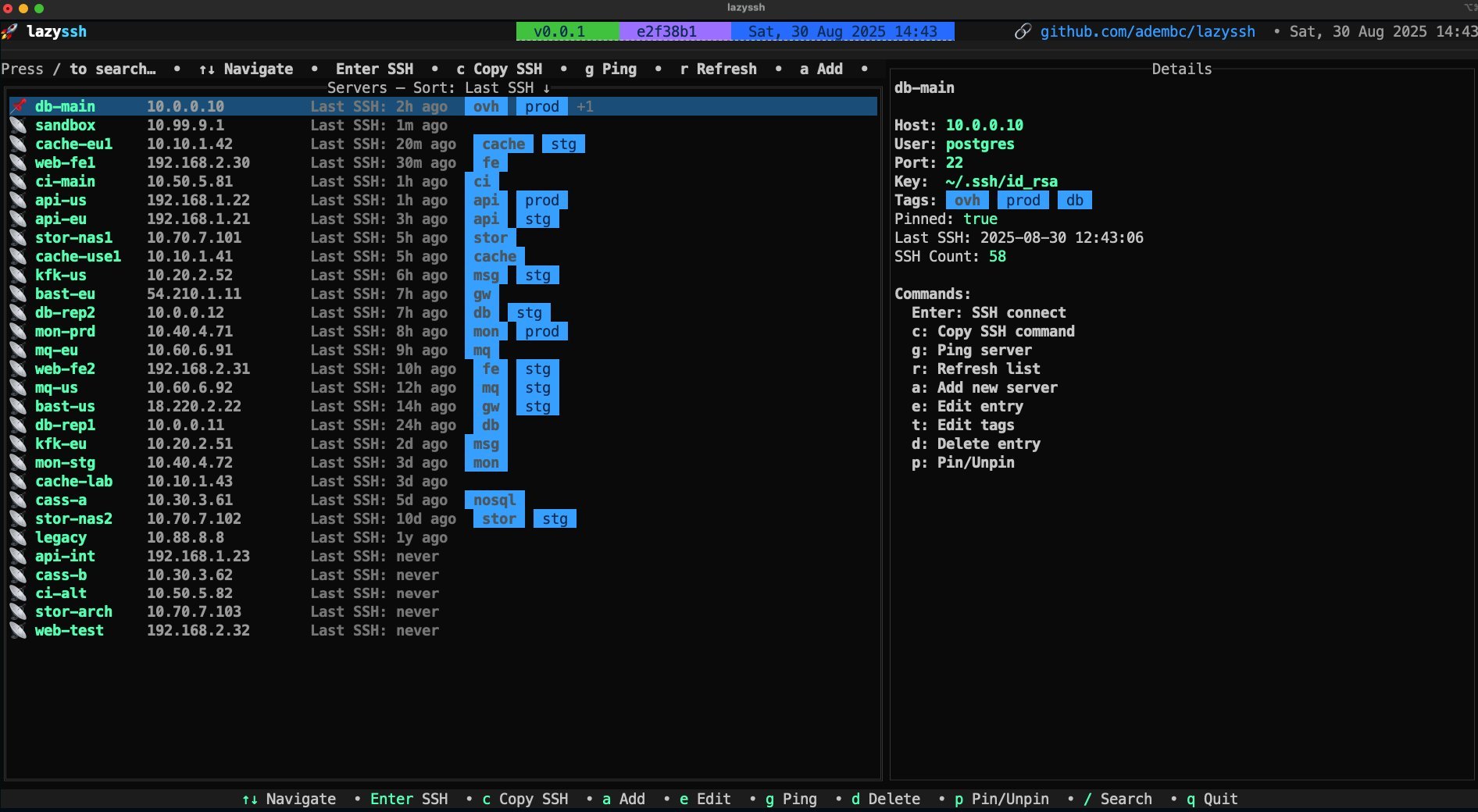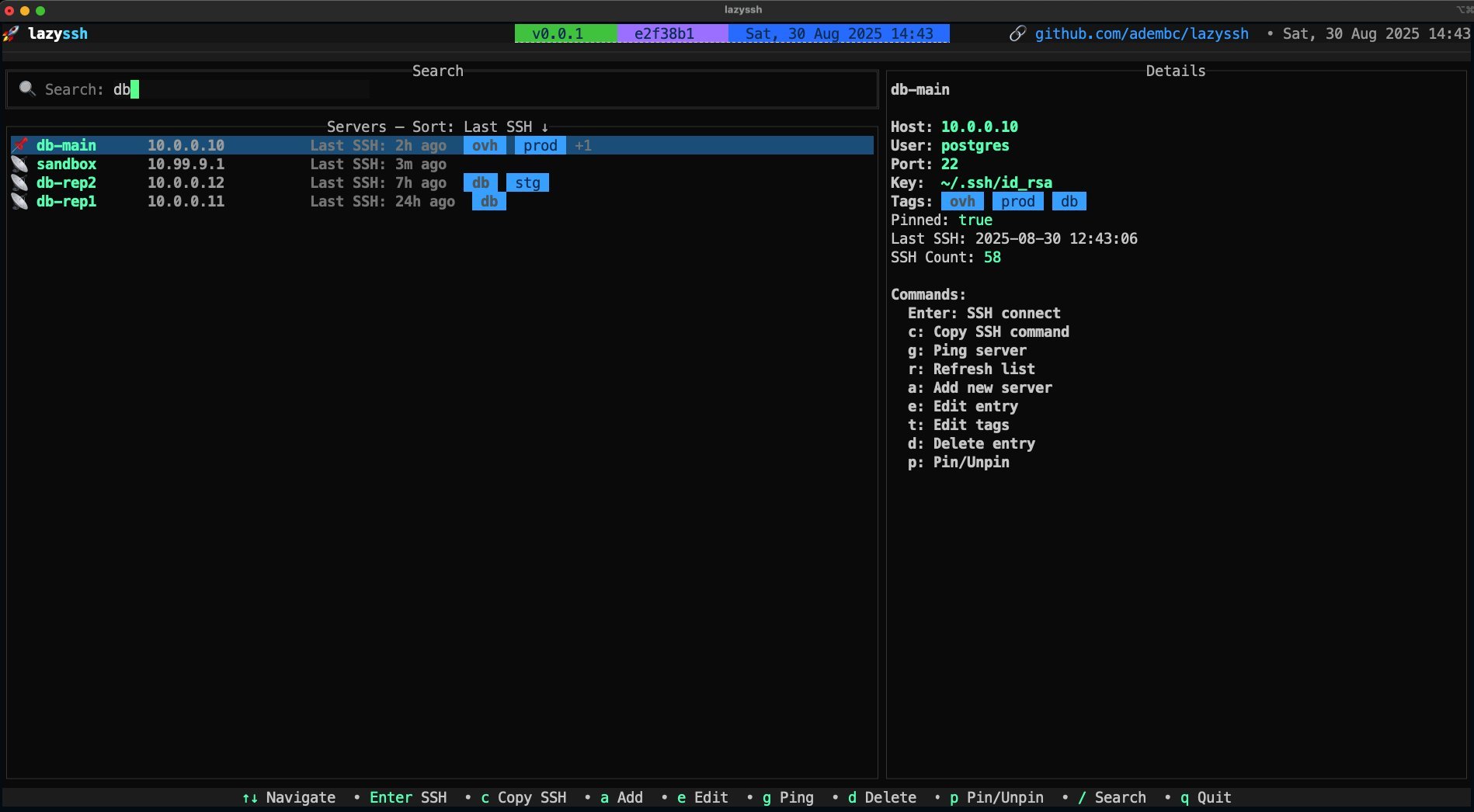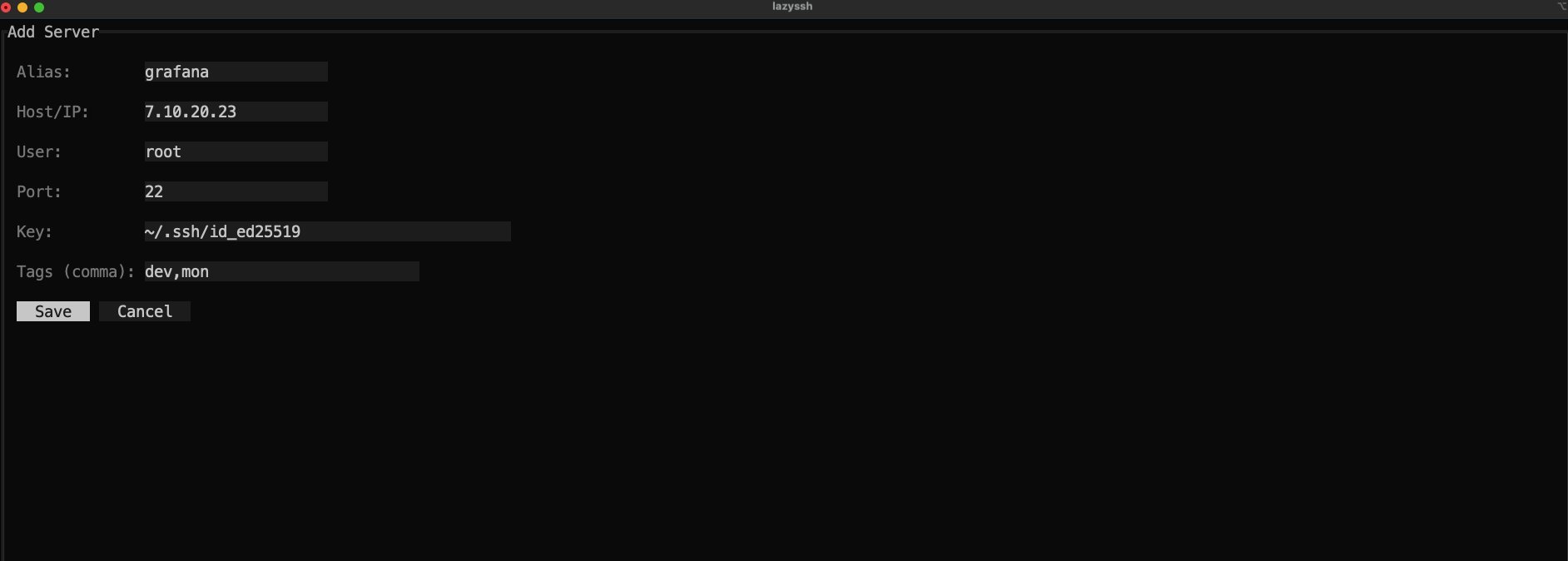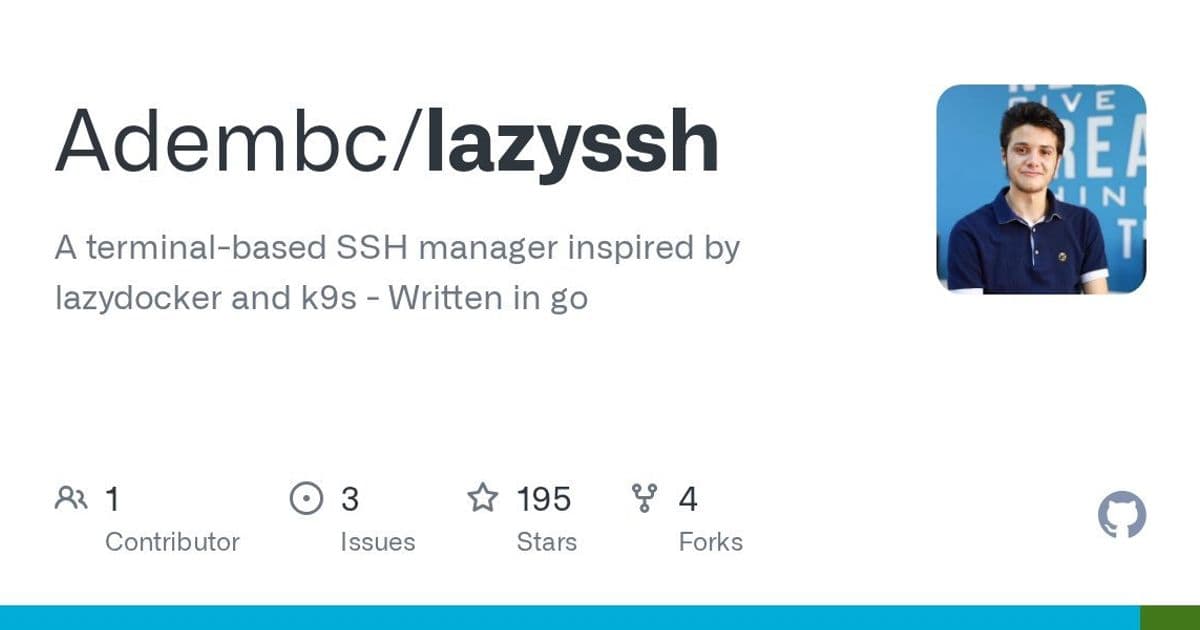Meet Lazyssh – the TUI powerhouse transforming how developers manage server fleets. This open-source tool brings Kubernetes-style efficiency to SSH operations with fuzzy search, visual tagging, and one-key connections, all while preserving OpenSSH security.
Terminal Titans, Meet Your SSH Game-Changer
For developers juggling dozens of servers, the traditional SSH workflow is a minefield of forgotten IPs, manual scp commands, and scattered configuration files. Enter Lazyssh – a terminal user interface (TUI) that applies Kubernetes-grade management principles to SSH operations. Born from the lineage of beloved tools like lazydocker and k9s, this open-source project delivers a visual, keyboard-driven dashboard for your entire server fleet.
 Server list view with status indicators and pinned favorites (Source: Lazyssh GitHub)
Server list view with status indicators and pinned favorites (Source: Lazyssh GitHub)
Why Your Terminal Deserves This Upgrade
Lazyssh directly integrates with your existing ~/.ssh/config while adding crucial productivity layers:
- Zero-Memory SSH: Fuzzy search servers by alias, IP, or custom tags (e.g.,
prod,db) with/keystroke activation - Visual Management: Add/edit/delete servers directly in TUI – no more
nanoconfig edits - Smart Organization: Pin critical servers, sort by usage frequency, and ping hosts for live status
- Security-Transparent: Executes native OpenSSH binaries, preserves file permissions, and never stores credentials
"This isn't just another SSH client – it's an operations dashboard for anyone living in terminals," explains the project's documentation. By wrapping OpenSSH rather than replacing it, Lazyssh eliminates new attack vectors while modernizing access.
 Fuzzy search in action – filter servers by any fragment (Source: Lazyssh GitHub)
Fuzzy search in action – filter servers by any fragment (Source: Lazyssh GitHub)
Under the Hood: The Developer-Centric Details
Killer Features Shipping Now
- One-Keystroke Connections:
EnterSSHes into selected servers - Clipboard Magic:
ccopies precisesshcommands for scripting - Tag-Based Filtering: Instantly isolate
stagingoreast-coastservers - Safe Config Editing: Automatic backups before any file modifications
The Roadmap That Excites
- SCP Simplified: In-TUI file transfers between local and remote systems (no more memorized
scpflags) - Visual Port Forwarding: Setup tunnels without command-line gymnastics
- Key Management: Generate and deploy keys directly from the interface
 Adding a new server through intuitive forms (Source: Lazyssh GitHub)
Adding a new server through intuitive forms (Source: Lazyssh GitHub)
Installation: Get Started in 60 Seconds
# Homebrew (macOS)
brew install Adembc/homebrew-tap/lazyssh
# Linux/macOS Binary
curl -LJO "https://github.com/Adembc/lazyssh/releases/download/$(curl -sL https://api.github.com/repos/Adembc/lazyssh/releases/latest | jq -r .tag_name)/lazyssh_$(uname)_$(uname -m).tar.gz"
tar -xzf lazyssh_*.tar.gz
sudo mv lazyssh /usr/local/bin/
Why This Matters for Modern Ops
As infrastructure grows more distributed, Lazyssh solves the “configuration drift” plaguing DevOps teams. By making SSH management visual and interactive, it reduces cognitive load during incidents while providing enterprise-grade organization to personal workflows. The strict adherence to existing OpenSSH standards means adoption requires zero workflow sacrifices – only productivity gains.
With its Kubernetes-inspired interface and commitment to terminal-native efficiency, Lazyssh exemplifies the new wave of TUI tools transforming administrative overhead into focused engineering. For teams embracing terminal-centric workflows, this isn't just convenience – it's operational evolution.
Source: Lazyssh GitHub Repository

Comments
Please log in or register to join the discussion